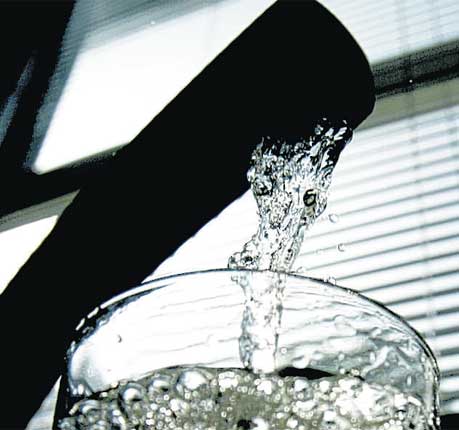Britain's rivers 'being ruined by demands of water companies'
Study says extraction causing harm, but warns cost of remedy may be passed to consumers

Water companies are draining the nation's most at-risk rivers dry, causing environmental damage, death to wildlife and the build-up of chemicals that upset fragile aquatic ecosystems, all of which could result in ever-higher bills for consumers, a damning report will say tomorrow.
Current abstraction by firms from rivers and groundwater sources is so high that it would take the equivalent of 23 million people to stop using water every day to get back to environmentally sustainable levels.
The report by Policy Exchange, David Cameron's favourite think-tank, calls for the UK's water companies to be charged more for using the most environmentally vulnerable rivers and boreholes, with cheaper rates for those that frequently flood.
This would force companies to use the most at-risk sources less often, and allow those rivers to eventually return to environmentally sustainable levels, the report argues. There would also be higher charges for abstraction during droughts.
Without action, the report says, current practices will cause "serious damage to river and wetland ecologies" and water bills will soar.
The study, by Dr Simon Less, a former director of Ofwat, also recommends households be fitted with smart meters charging higher rates for water at peak times and when water is most scarce, during summer and droughts. A White Paper to be published in November is expected to propose smart metering in homes.
The calls for higher charges for abstraction are bound to prompt fears that water companies will try to pass on the cost to consumers. Average water bills are already set to rise by around 4.6 per cent to £356 this year, yet the report says there should be no extra cost to firms if the charging regime is simply restructured.
The driest spring for decades has left several rivers, mainly in the south and east of England, dry and has triggered an increase in deaths to wildlife and eradicated banks of wild flowers. It was reported last week that 200 swans have died on the Thames alone in the past six months from drought and other factors.
But the report, Untapped Potential, argues that even before this spring, the long-term effects of climate change and increasing demand by soaring population rates have caused water levels to drop significantly.
Some rivers dry up completely for long periods of the year, and just 15 per cent of the country's river network is in a condition to support a "healthy ecosystem", Dr Less, head of Policy Exchange's Environment and Energy Unit, told The Independent on Sunday last night.
The report says: "Many rivers and natural environments are suffering damage on a regular basis as a result of over-abstraction of water, and not leaving enough to maintain a healthy ecosystem. Some rivers are drying up completely at certain times, which can be fatal for the wildlife that relies on them. But also significant water-level drops can mean sewage and chemical contaminants become more concentrated, rivers slow down, fill up with sediment and may get warmer, all of which severely affect habitats for fish, insects, animals and plants, sometimes irreversibly."
At present, the UK's 26 water companies are permitted, for a fee, to take water from rivers whether they are environmentally at risk or not.
The Environment Agency operates around 20,000 abstraction licences in England and Wales, with the Scottish Environment Protection Agency operating a similar system that allows holders to take water from rivers or boreholes.
The report says the "cheapest sources of water are generally exploited first" – with water companies using rivers and boreholes close to infrastructure, regardless of how low the levels are, rather than reservoirs further away, which is more expensive to transport.
The report says: "Signalling environmental costs through the structure of abstraction charges would influence water companies' operational decisions. Where they had a choice of sources, companies might be incentivised to use environmentally sensitive, but cheap, sources less often."
The report suggests that the overall cost of abstraction licences to water companies, around £95m in total, would not need to change.
Dr Less said: "Only 15 per cent by length of UK rivers are in a condition to support a healthy, vibrant ecosystem. At the current rate of progress in tackling over-abstraction, it could take centuries to address current problems. On top of that, population increases and potential changes in rainfall patterns risk more rivers drying up and greater ecosystem damage within the next couple of decades."
Join our commenting forum
Join thought-provoking conversations, follow other Independent readers and see their replies
Comments
Bookmark popover
Removed from bookmarks